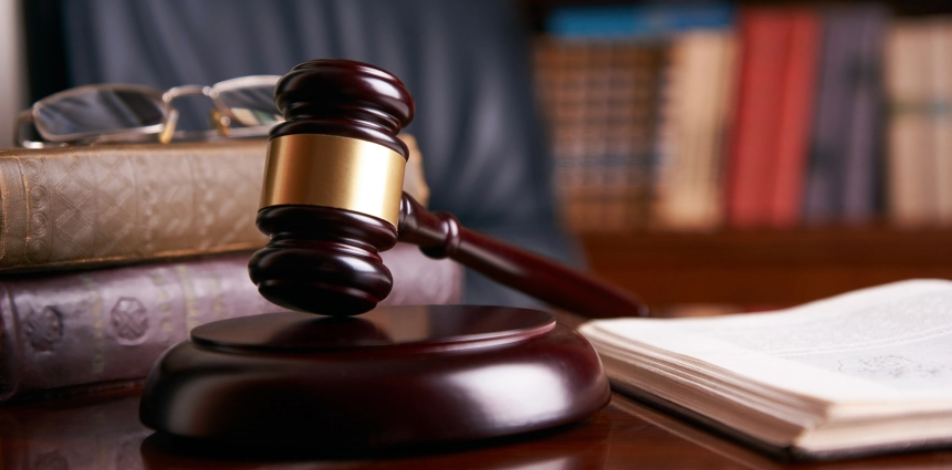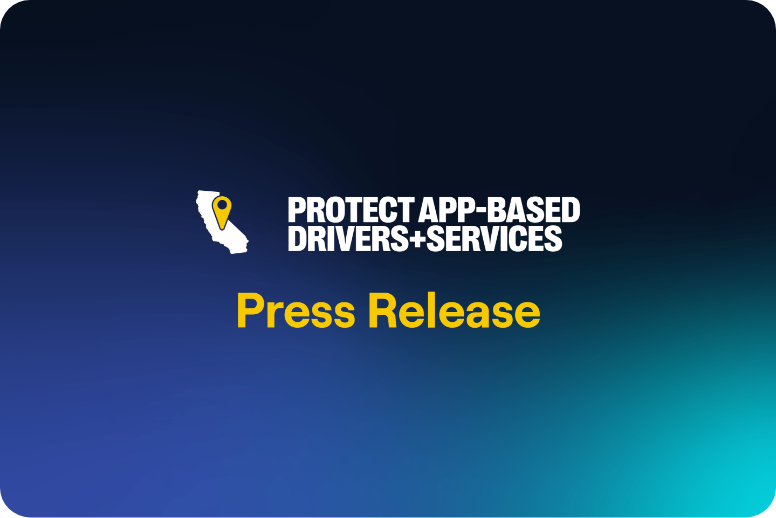SACRAMENTO – Yesterday, the Secretary of State released the public display of the ballot pamphlet, including Pro and Con arguments, rebuttals and 50-word statements from each ballot proposition campaign before California voters on November 3.
The No on Prop 22 campaign ballot pamphlet materials were full of deceptive statements, distortions of the truth, and lies about Prop 22 and what app-based drivers want. Below are just a few of their deceptive claims:
OUTRIGHT LIE: “(Prop) 22 denies their drivers rights and safety protections they deserve: sick leave, healthcare and unemployment.” (No on 22 50-Word Statement).
THE TRUTH: Prop 22 gives app-based drivers a new contribution toward health care benefits that drivers do not receive today. In fact, drivers start earning the health care contribution at 15 hours per week and reach the full amount at 25 hours per week – a more generous benefit than what’s required under an AB 5 employment model.(Prop 22, Article 4, Section 7454)
DECEPTION: “(Prop 22) eliminates basic workplace benefits and replaces them with a new lower “earnings guarantee.” (No on 22 ballot arguments, page 2)
THE TRUTH: Prop 22 establishes a legally guaranteed minimum hourly rate, ensuring drivers always earn at least 120% of minimum wage for engaged time, plus 30 cents per mile, with 100% of tips paid on top, while preserving the opportunity to earn more. (Article 3, Section 7453)
Based on this policy, under Prop 22, the average minimum pay will be approximately $21 per hour in 2021. Here’s the math:
- As of January 1, 2021, the average statewide minimum wage = $14/hour.
- $14/hr x 120% = $16.80/hour.
- Minimum $.30 per mile (adjusted annually per CPI) to account for expenses x 15 miles driven on average per engaged hour = $4.50 additional per hour.
- $16.80/hr + $4.50/hr = $21.30/hr is the hourly rate a driver is guaranteed in this scenario.
- This number will be higher in cities with a higher local minimum wage. For example, starting July 1, 2020, the minimum wage in San Francisco is $16.07, thus $23.78 per engaged hour would be the minimum earnings floor (pending CPI adjustment).
That’s why by a 4:1 margin, drivers in multiple polls have said they want to remain independent contractors, not employees. More than 75,000 drivers in California support Prop 22 because they know it’s a win for drivers.
DECEPTION: “A University of California study found that a majority of drivers are not part-time and over 70 percent of drivers for Uber and Lyft work 30 or more hours per week.” (No on 22 ballot argument, page 2)
THE TRUTH: This University of California “study” is actually a thoroughly debunked advocacy piece conducted by Jobs with Justice, a group that receives funding from the Service Employees International Union, a leading contributor to the No on 22 campaign. It was not a statewide survey of drivers as No on 22 deceptively would lead voters to believe. This non-representative, flawed poll was conducted with only a few hundred drivers in the Bay Area even though more than 1 million drivers across California chose to work with app-based companies in 2019.
Additionally, the survey had no controls to verify if respondents were app-based drivers. The survey was overseen by a single professor at the University of California Santa Cruz, Chris Brenner, who wrote in internal emails: “with an online survey, it leaves open lots of opportunities for people to game it.”
According to the nonpartisan Legislative Analyst’s Office analysis of Prop 22, “Most drivers work part time and many drivers only work for a short time or only drive occasionally.”
Furthermore, a report conducted by the Berkeley Research Group using actual driver hours and earning data from the five major app-based platforms found 80% of all drivers work fewer than 20 hours per week, and the majority work fewer than 10 hours per week. Approximately 70% of all drivers work fewer than 20 weeks a year, and most work fewer than 5 weeks per year.
DECEPTION: “Prop 22 ELIMINATE(S) required sexual harassment training and the obligations on Uber and Lyft to investigate customers’ and drivers’ sexual harassment claims.” (No on 22 ballot argument, page 2)
THE TRUTH: Proposition 22 contains lengthy, strong new requirements on app-based platforms to prevent, investigate, report and protect drivers and customers from sexual harassment (Prop 22 Article 5, Section 7456).
- Transportation Network Companies (TNCs) and Delivery Network Companies (DNCs) must develop a sexual harassment policy intended to protect app-based drivers and members of the public using delivery services or transportation services.
- Prop 22 requires TNC and DNC drivers to review and confirm the network company’s sexual harassment policy as a condition of being enabled to work on that platform.
- Prop 22 requires TNCs and DNCs to establish a process for app-based drivers, customers, and rideshare passengers to submit complaints that ensure confidentiality; requires companies to conduct an impartial, timely and thorough investigation when they receive an allegation of misconduct; and requires companies to provide remedial actions and resolutions based on the information collected during the investigation process.
- Prop 22 prohibits TNCs and DNCs from retaliating against those who make a good-faith complaint or participate in a sexual harassment investigation.
A study by the Berkeley Research Group confirms an employment model would further eliminate up to 900,000 app-based jobs, a reduction of between 80-90 percent of drivers currently driving today. These job losses will come at the worst possible time when California is facing high unemployment and when app-based work opportunities will provide a lifeline for people to earn income.
Proposition 22 would save the availability of this important work, ensure driver flexibility, protect the ability of California’s one million app-based drivers to choose to work as independent contractors and provide new earning guarantees and benefits. These include:
Prop 22 improves the quality of app-based work by requiring app-based platforms to provide drivers:
- Guaranteed minimum earnings, including compensation toward expenses
- Funding for new health benefits for drivers who work at least 15 hours a week
- Occupational accident insurance to cover injuries and illnesses on the job
- Protection against discrimination and sexual harassment
Prop 22 implements strong new public safety protections:
- Recurring background checks of drivers
- Mandatory new safety courses for drivers
- Zero tolerance for alcohol and drug offenses
- Making it a crime to impersonate a driver
The Latest News

Opinion
I’m an Instacart driver: California Supreme Court must protect my job
By Stephanie Whitfield It may sound dramatic to say that app-based driving saved my life, [...] Read more
News
As Prop. 22 heads to California Supreme Court, support doesn’t break along ideological lines
By Bob Egelko Proposition 22, the 2020 ballot initiative sponsored by Uber and Lyft that [...] Read more